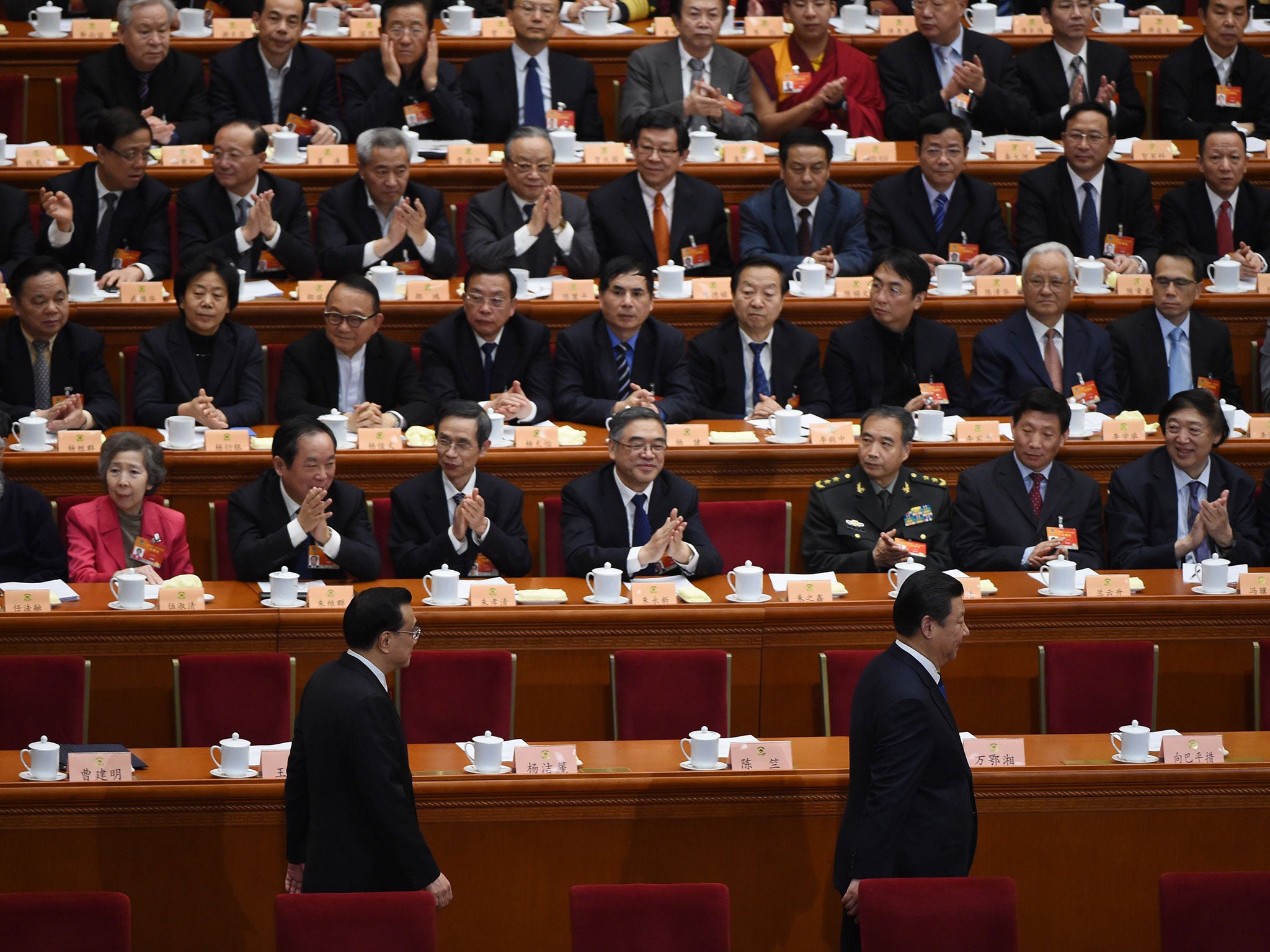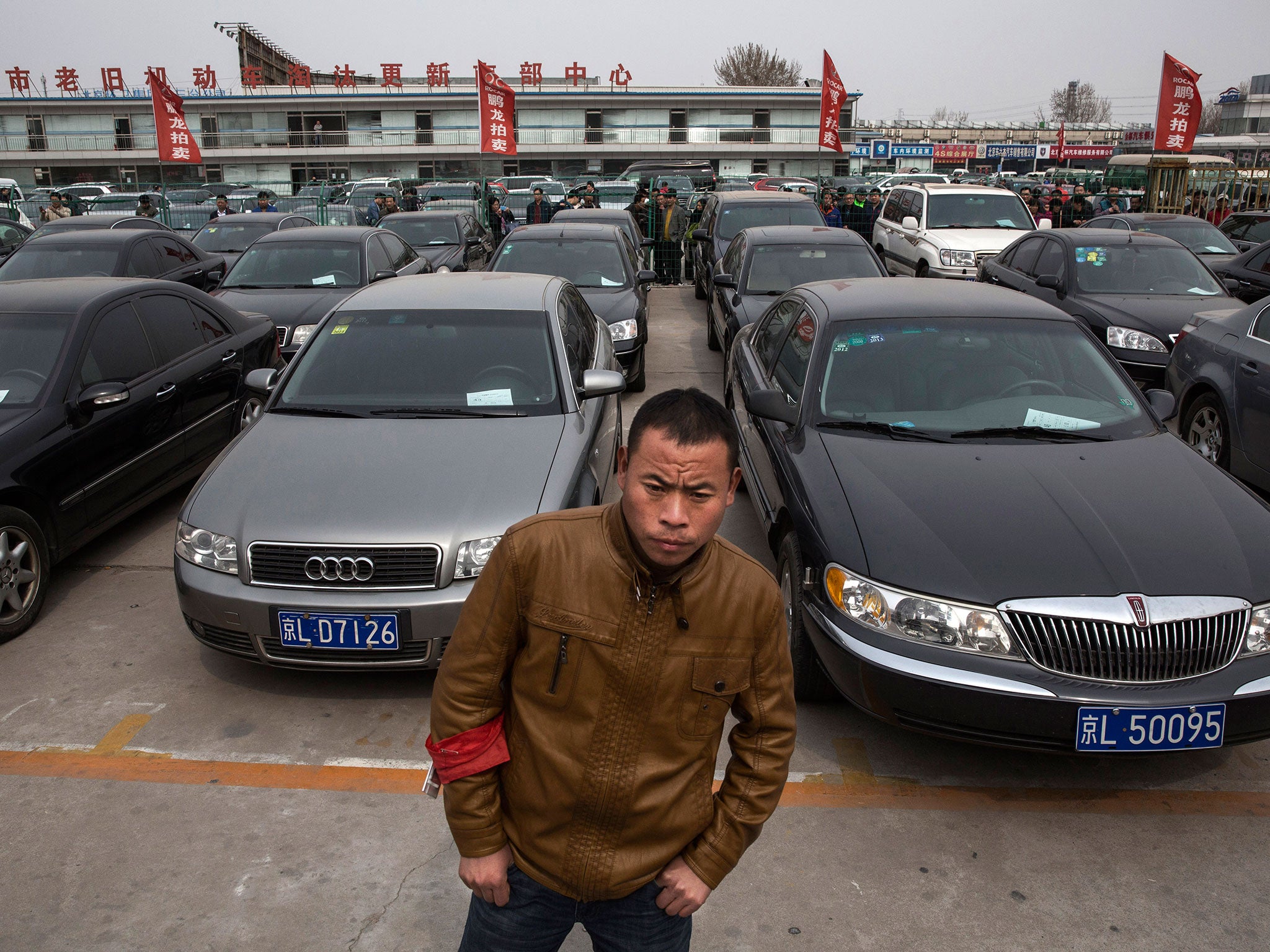Operation Skynet: China's anti-corruption campaign goes international as Beijing reaches out to uncover officials fled abroad
Lacking extradition treaties with Britain or the US, President Xi Jinping is trying to negotiate the return of corrupt officials who have fled. As Jamie Fullerton reports from Beijing, some on the wanted list are returning by choice

The anti-corruption campaign that President Xi Jinping enacted on coming to power in 2012 has been the most ambitious drive to clean up politics in China’s history. It has swept up party officials, security chiefs and high-ranking generals alike, and spread disquiet among the ranks of the Communist Party across the country.
Of late, Mr Xi has begun turning his sights beyond China’s borders, and is now reaching out to countries, including the US and possibly Britain, to help snare corrupt officials taking refuge abroad. Operation Skynet, announced last week, is the latest police-led campaign that will co-ordinate various government departments to uncover corrupt officials abroad. It builds on Operation Foxhunt, China’s initial global fugitive search, which caught more than 500 officials living abroad last year.
In February, Italy extradited a Chinese woman suspected of fraud worth more than 1.4 m yuan (£150,000), the first such case and one China hopes will be repeated.
News of the latest operation came within days of the Chinese government giving the US a “priority” list of suspected corrupt officials it believes have fled to America. China has said it believes about 150 “economic fugitives” are living in the US.
According to the BBC, citing an unnamed “authoritative source”, the Chinese government has also asked Britain to help return about 50 allegedly corrupt officials from the UK.
Beijing does not have extradition treaties with Washington or London, but it has held talks with US officials that it hopes will lead to deals on a case-by-case basis.
Much to the horror of human rights groups, France does have an extradition deal with China and last December the French government said it would be willing to help root out fugitives – if the death penalty was off the table. China gave France a list of 10 allegedly corrupt officials thought to be living there or in neighbouring countries.
With China also lacking extradition deals with Canada and Australia – both allegedly popular locations for corrupt officials on the run – “fox hunters” have largely relied on coaxing their targets home with the promise of reduced sentences and relief from the pressure of life as a fugitive. In October last year Chinese state media said 40 per cent of “foxes” returned to China voluntarily when contacted by police.

Xue Lei, an international law specialist at the Shanghai Institutes for International Studies, told The Independent: “The fox hunt has been working well because a lot of the foxes were effectively persuaded to return.
“Many of the escaped officials thought it would be paradise once they got out of China, but a lot of them lead a difficult life and are fearful. Also, if you come forward, your penalty is reduced. They often choose to come back, take the sentence, then start over.”
According to Mr Xue, most of the names on China’s hit list stand accused of financial crimes, making them more likely to be liable under money laundering laws in their new host country. The effect is to ratchet up the pressure.
Earlier this month police claimed a victory, making public a confession from Wang Guoqiang, a former party chief in the north-eastern province of Liaoning. Wang was accused of illegally taking more than 200m yuan out of China and fleeing to the US three years ago. The exact location of his home in the US was not revealed.
His confession, posted on the website of the Central Commission for Discipline Inspection, was pointedly designed to paint a bleak picture of a “fox on the run”.
“The condition of the shared house was really bad,” Wang said of his stay in the US. “The other tenant was tall and as big as a horse and always looked at my wife with kinky stares, which really terrified us. My wife was in panic all day. I was always prepared for the worst to happen.”
Wang said he became so depressed he decided to give himself up. The commission described the statement as “vivid textbook material” and said all corrupt officials abroad should read it.
China has promised to seize assets bought by officials with their ill-gotten gains. The government publicly declared that a Cannes mansion worth €6.95m (£5.45m) that was owned by the jailed politician Bo Xilai would be claimed, although it briefly went on the market last December.
Another property potentially in the Chinese government’s sights is a 4,000sq ft Los Angeles home said to be owned by the former rail official Zhang Shuguang. In October Zhang was given the death sentence for corruption, with state media claiming that he used money from bribes to buy the property.
The government has repeatedly stated that no corrupt officials are safe from its hunt for both “tigers” (high-ranking individuals, such as Communist Party chiefs) and “flies” (low-rankers such as local government workers or teachers).
President Xi’s anti-corruption drive has claimed victory in lifting public morale by showing that the abuse of power will not be tolerated. It has also conveniently allowed him to strip power from his political enemies, such as the former senior party leader Zhou Yongkang, who was arrested on corruption charges and expelled from the party last year.
Join our commenting forum
Join thought-provoking conversations, follow other Independent readers and see their replies
Comments